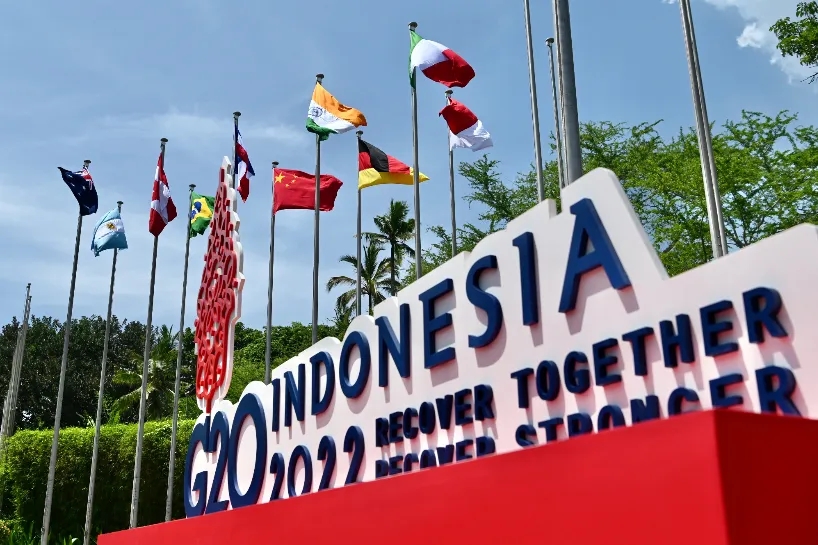The 17th Group of 20 (G20) Summit concluded on November 16th with the adoption of the Bali Summit Declaration, a hard-won outcome. Due to the current complex, severe and increasingly volatile international situation, many analysts have said that the Bali Summit declaration may not be adopted like previous G20 summits. It is reported that Indonesia, the host country, has made a plan. However, leaders of the participating countries handled differences in a pragmatic and flexible manner, sought cooperation from a higher position and a stronger sense of responsibility, and reached a series of important consensus.
We have seen that the spirit of seeking common ground while shelving differences has once again played a guiding role in the critical moment of human development. In 1955, Premier Zhou Enlai also put forward the policy of “seeking common ground while shelving differences” while attending the Asian-African Bandung Conference in Indonesia. By implementing this principle, the Bandung Conference became an epoch-making milestone in the course of world history. From Bandung to Bali, more than half a century ago, in a more diversified world and multi-polar international landscape, seeking common ground while reserving differences has become more relevant. It has become a major guiding principle for handling bilateral relations and resolving global challenges.
Some have called the summit “a bail-out for the global economy threatened by recession”. If viewed in this light, the leaders’ reaffirmation of their commitment to work together once again to address global economic challenges undoubtedly indicates a successful summit. The Declaration is a sign of the success of the Bali Summit and has increased the confidence of the international community in the proper settlement of the global economy and other global issues. We should give a thumbs up to the Indonesian Presidency for a job well done.
Most American and Western media focused on the Declaration’s expression of the conflict between Russia and Ukraine. Some American media also said that “the United States and its Allies have won a major victory”. It has to be said that this interpretation is not only one-sided, but also completely wrong. It is misleading to international attention and betraying and disrespecting the multilateral efforts of this G20 Summit. Obviously, the US and Western public opinion, which is curious and preemptive, often fails to distinguish priorities from priorities, or deliberately confuses public opinion.
The Declaration recognizes at the very beginning that the G20 is the premier forum for global economic cooperation and “not a forum for addressing security issues”. The main content of the Declaration is to promote world economic recovery, address global challenges and lay the foundation for strong, sustainable, balanced and inclusive growth. From the pandemic, climate ecology, digital transformation, energy and food to finance, debt relief, multilateral trading system and supply chain, the summit held a large number of highly professional and practical discussions, and stressed the importance of cooperation in various fields. These are the highlights, the pearls. I need to add that China’s position on the Ukrainian issue is consistent, clear and unchanged.
When Chinese people read the DOC, they will come across many familiar words and expressions, such as upholding people’s supremacy in tackling the epidemic, living in harmony with nature, and reaffirming our commitment to zero tolerance of corruption. The Declaration also mentions the initiative of the Hangzhou Summit, which reflects China’s outstanding contribution to the multilateral mechanism of the G20. In general, the G20 has played its core function as a platform for global economic coordination, and multilateralism has been emphasized, which is what China hopes to see and strives to promote. If we want to say “victory”, it is a victory for multilateralism and win-win cooperation.
Of course, these victories are preliminary and depend on future implementation. The G20 has high hopes because it is not a “talking shop” but an “action team”. It should be noted that the foundation of international cooperation is still fragile, and the flame of cooperation still needs to be carefully nurtured. Next, the end of the summit should be the beginning of countries to honor their commitments, take more concrete actions and strive for greater tangible results in accordance with the specific direction specified in the DOC. Major countries, in particular, should lead by example and inject more confidence and strength into the world.
On the sidelines of the G20 summit, a Russian-made missile landed in a Polish village near the Ukrainian border, killing two people. The sudden incident raised fears of escalation and disruption to the G20 agenda. However, the response of relevant countries was relatively rational and calm, and the G20 ended smoothly while maintaining overall unity. This incident once again reminds the world of the value of peace and development, and the consensus reached at the Bali Summit is of great significance to the pursuit of peace and development of mankind.
Post time: Nov-18-2022

 Whatsapp:+86 15222867341
Whatsapp:+86 15222867341 



